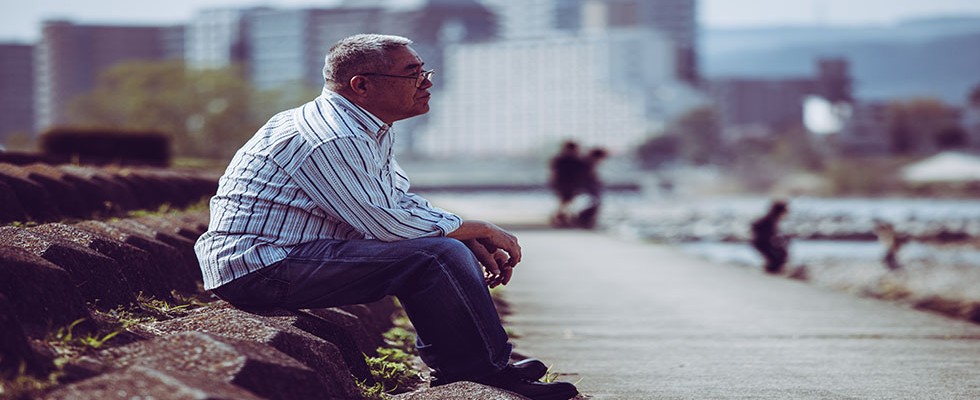
Getting old is tough; few would debate that. Apart from the existential problem of facing our own mortality, aging is also tough on us physically. Our bones and muscles ache, we tire more easily, and falls become an ever more perilous threat. These symptoms of aging can appear long before retirement age, but life does get harder as we age, with each decade bringing new challenges.
That is not to say that all seniors are frail. Far from it. Many seniors work to retain great physical health. In fact, the biggest threat to health many seniors face is not physical at all.
The Isolation Problem
Seniors are at risk of isolation—perhaps more so than any other demographic. After retirement, many lose the daily routine of going to work and interacting with coworkers, employers, employees, customers and clients. Also, family members cannot always be available, especially if they live in a different town.
Humans are social creatures and need social interaction to stay healthy, or emotional and mental well-being begins to deteriorate. Even when a senior is physically healthy, poor mental or emotional health can begin to have a detrimental effect on their body. These problems can be even more pronounced for those seniors who are single, and especially those who are recently widowed.
Addressing Mental Health
Mental health is a complicated issue and the causes of mental health problems are not always clear. But what is known is that seniors suffer from depression at alarming rates, possibly due to isolation. Americans in general tend to live somewhat nomadic lives—now more than ever. The United States is a big country and people move around. By the time a person reaches retirement, they may find that they live nowhere near where they grew up, leaving behind friends and family. Adult children may have moved away, too. This can leave seniors alone in a world built for young, healthy people.
Situations like this can be especially bad for seniors who live alone, but it is important to note that senior couples can also become isolated from the outside world together, and suffer mental health consequences in return.
Family members are often unable to provide regular care for their aging loved one. Many children do not live near their parents. Even if they do, they often cannot spend as much time with their elderly loved ones as they would like; they have their own family, work and social commitments to balance. But it goes beyond just being a time issue. As much as we have worked to reduce the stigma of mental health problems in our society, it still exists. Many people are hesitant to raise their mental health struggles with loved ones, especially seniors who grew up in an era when stigma around mental health issues was much more severe. Without an outlet for their frustrations, seniors can become depressed, and even struggle with self-care.
Regular exercise is an essential part of general well-being, and it can improve seniors’ mental health as well. Regular exercise has been linked to reducing the risk of dementia and Alzheimer’s, as well as relieving feelings of anxiety and depression. Keeping active can help foster a positive sense of well-being and an optimistic outlook on life. Exercise may also help with concentration on favorite leisure activities. Seniors, especially those who live alone and find themselves unable to do some of the more demanding hobbies they enjoyed in their youth, may struggle to fill their days with meaningful activities. Exercise is not only an activity to fill the time—it can help keep the mind sharp so the senior can focus much more easily on other activities such as reading or doing crosswords.
Age we age our appetite can decrease. It is not uncommon for children of seniors to see their parents lose weight as they get older; this could be because the senior is not hungry or the brain isn’t relaying hunger cues. Regular exercise may lead to more regular eating habits and a desire to eat more, which will in turn lead to better consistency in physical and mental health.
Moving Care Home
While society has made great strides in mental health awareness, many still tend to focus on mental health only in the absence of physical health problems. If a senior has a bad hip, a thyroid problem, or any other physical ailment, it does not preclude having mental and emotional troubles, too. Elder companionship care should be considered to help with any mental or physical issues senior may experience—either at home or in a facility. Some seniors embrace the move into a senior care facility, but many have grown attached to their homes and do not want to leave, especially if they view such move as signaling a final chapter in their lives. Worries about infection control in facilities have also surged during the coronavirus pandemic.
Homecare has evolved beyond doling out meals and helping seniors get in and out of wheelchairs. At the forefront of elder care is in-home companionship. In-home companionship most often involves a homecare aid coming to visit a senior at regularly scheduled intervals. They talk to the senior, ask after their health, play games and help with physical exercises. In-home companion caregivers can also help keep seniors in touch with family and friends, and help them with light errands such as sorting through mail, meal preparation and transportation. In-home companionship not only helps to keep seniors mentally sharp and emotionally stable, but also to keep a keen eye out for any burgeoning condition or issue, which can then be relayed to the family. And with in-home companion care already established, the door is open for more serious care.
